|
Reprinted from “The Autobiography of George Müller” pp. 135-138 For the encouragement of believers who are tried by having unconverted relatives and friends, I will relate the following circumstance which I know is true. Baron von Kamp, who lived in Prussia, had been a disciple of the Lord Jesus for many years. In the year 1806, great financial distress came upon many thousands of weavers in the area. They had no employment because the whole continent was in an unsettled state from the war. The baron believed that it was the will of the Lord to use his wealth to furnish these poor weavers with work in order to save them from complete ruin. There was not only no prospect of personal gain, but rather the certain prospect of immense loss. Nevertheless, he found employment for about six-thousand weavers. But the baron was not content with this. He also wanted to minister to the souls of these weavers. He set believers as overseers over his immense weaving concern. The weavers were instructed in spiritual things, and he personally shared the truth of the gospel with them. The work went on for a good while until at last, on account of the loss of most of his property, he was obliged to think about giving it up. But by this time, his precious act of mercy had proven its worth to the government. It was taken up by them and carried on until the times changed. Baron von Kamp was appointed director of the whole concern as long as it existed. This dear man of God was not content with this. He traveled through many countries to visit the prisons for the sake of improving the physical and spiritual condition of the prisoners. He also assisted poor students at the University of Berlin, especially those who studied theology, in order to win them for the Lord. One day a talented young man heard of the aged baron’s kindness to students. He wrote to the baron requesting his assistance, because his own father could not afford to support him any longer. A short time afterward, young Thomas received a kind reply from the baron inviting him to come to Berlin. But before this letter arrived, the young student had heard that Baron von Kamp was a “Pietist” or “mystic,” as true believers were contemptuously called in Germany. Young Thomas was deeply involved in philosophy, reasoning about everything, questioning the truth of revelation, questioning even the existence of God. He disliked the prospect of going to the old baron for help. Still, he thought he could try, and if he did not like it he was not obligated to remain in connection with him. Thomas arrived in Berlin on a day when the baron was out of town on business. He began to speak about his philosophies to the steward of the baron. The steward, however, was a believer, and he turned the conversation to spiritual things. At last the baron arrived. He received Thomas in the most affectionate and familiar manner. The baron offered him a room in his house and a place at his table while Thomas studied in Berlin. Thomas accepted the offer. The baron now sought in every way to treat the young student in the most kind and affectionate way, to serve him as much as possible, and to show him the power of the gospel in his own life. He did all this without arguing with him or even speaking to him directly about his soul. Thomas obviously had a skeptical mind, and the baron avoided getting into any argument with him. The student often said to himself, “I wish I could get into an argument with this old fool. I would show him how irrational his beliefs are.” But the baron avoided it. When the baron heard the young student come home in the evening, he would go to meet him and serve him in any way he could, even helping him to take off his boots. Thus this lowly, aged disciple went on for some time. While Thomas still sought an opportunity for arguing with him, he wondered how the baron could continue to serve him. One evening when Thomas returned to the baron’s house, the baron was making himself his servant as usual. The student could restrain himself no longer and burst out, “Baron, how can you do all this? You see I do not care about you. How are you able to continue to be so kind to me and serve me like this?” The baron replied, “My dear young friend, I have learned it from the Lord Jesus. I wish you would read through the Gospel of John. Good night.” The student now for the first time in his life sat down and read the Word of God with an open heart and a willingness to learn. Up to that time, he had never read the Holy Scriptures unless he wanted to find out arguments against them. God blessed him; from that time he became a follower of the Lord Jesus and has continued in the faith ever since. I want to encourage all believers to get into the habit of rising early to meet with God. How much time should be allowed for rest? No rule of universal application can be given because all persons do not require the same amount of sleep. Also the same persons, at different times, according to the strength or weakness of their body, may require more or less. Most doctors agree that healthy men do not require more than between six or seven hours of sleep, and females need no more than seven or eight hours. Children of God should be careful not to allow themselves too little sleep since few men can do with less than six hours of sleep and still be well in body and mind. As a young man, before I went to the university, I went to bed regularly at ten and rose at four, studied hard, and was in good health. Since I have allowed myself only about seven hours, I have been much better in body and in nerves than when I spent eight or eight and a half hours in bed. Someone may ask, “But why should I rise early?” To remain too long in bed is a waste of time. Wasting time is unbecoming a saint who is bought by the precious blood of Jesus. His time and all he has is to be used for the Lord. If we sleep more than is necessary for the refreshment of the body, it is wasting the time the Lord has entrusted us to be used for His glory, for our own benefit, and for the benefit of the saints and unbelievers around us. Just as too much food injures the body, the same is true regarding sleep. Medical persons would readily agree that lying longer in bed than is necessary to strengthen the body actually weakens it. It also injures the soul. Lying too long in bed not merely keeps us from giving the most precious part of the day to prayer and meditation, but this sloth leads also to many other evils. Anyone who spends one, two, or three hours in prayer and meditation before breakfast will soon discover the beneficial effect early rising has on the outward and inward man. It may be said, “But how shall I set about rising early?” My advice is: Do not delay. Begin tomorrow. But do not depend on your own strength. You may have begun to rise early in the past but have given it up. If you depend on your own strength in this matter, it will come to nothing. In every good work, we must depend on the Lord. If anyone rises so that he may give the time which he takes from sleep to prayer and meditation, let him be sure that Satan will try to put obstacles in the way. Trust in the Lord for help. You will honor Him if you expect help from Him in this matter. Pray for help, expect help, and you will have it. In addition to this, go to bed early. If you stay up late, you cannot rise early. Let no pressure of engagements keep you from going habitually early to bed. If you fail in this, you neither can nor should get up early because your body requires rest. Rise at once when you are awake. Remain not a minute longer in bed or else you are likely to fall asleep again. Do not be discouraged by feeling drowsy and tired from rising early. This will soon wear off. After a few days you will feel stronger and fresher than when you used to lie an hour or two longer than you needed. Always allow yourself the same hours for sleep. Make no change except on account of sickness. (Autobiography, 117-119.) Still Faithful: George Muller's Prayer-Hearing God
Author: Steve Burchett The living, eternal Lord always came through for George Muller. He cared for over 10,000 orphans throughout his life in Bristol, England, but he made his needs known only to God. He believed God answered over 50,000 of his prayers. One of Muller’s hopes in trusting God this way and in meticulous record-keeping of answers to prayer was to strengthen the faith of other believers and to inspire them to more prayer. He explains this goal: The experience of this happiness I desire for all my Christian readers. If you believed indeed in the Lord Jesus for the salvation of your soul, if you walk uprightly and do not regard iniquity in your heart, if you continue to wait patiently, and believingly upon God; then answers will surely be given to your prayers. You may not be called upon to serve the Lord in the way the writer does, and therefore may never have answers to prayer respecting such things as are recorded here; but, in your various circumstances, your family, your business, your profession, your church position, your labor for the Lord, etc., you may have answers as distinct as any here recorded.[2] One story Muller documented about a broken down boiler in the orphanage has strengthened the faith of believers for over a century: It was towards the end of November of 1857, when I was most unexpectedly informed that the boiler of our heating apparatus at No. 1 leaked very considerably, so that it was impossible to go through the winter with such a leak… The boiler is entirely surrounded by brickwork; its state, therefore, could not be known without taking down the brickwork; this, if needless, would be rather injurious to the boiler, than otherwise… What then was to be done? For the children, especially the younger infants, I felt deeply concerned, that they might not suffer, through want of warmth. But how were we to obtain warmth? The introduction of the new boiler would, in all probability, take many weeks. The repairing of the boiler was a questionable matter, on account of the greatness of the leak; but, if not, nothing could be said of it, till the brick-chamber in which it is enclosed, was, at least in part, removed; but that would, at least, as far as we could judge, take days; and what was to be done in the meantime, to find warm rooms for 300 children? There were no reasonable alternative means of heating. Now what? At last I determined on falling entirely into the hands of God, who is very merciful and of tender compassion, and I decided on having the brick-chamber opened, to see the extent of the damage, and whether the boiler might be repaired, so as to carry us through the winter. The day was fixed, when the workmen were to come… The fire, of course, had to be let out while the repairs were going on… After the day was fixed for the repairs a bleak North wind set in. It began to blow either on Thursday or Friday before the Wednesday afternoon, when the fire was to be let out. Now came the first really cold weather, which we had in the beginning of that winter, during the first days of December. What was to be done? The repairs could not be put off. I now asked the Lord for two things, viz., that He would be pleased to change the north wind into a south wind, and that He would give the workmen ‘a mind to work’; for I remembered how much Nehemiah accomplished in 52 days, whilst building the walls of Jerusalem, because ‘the people had a mind to work.’ Well, the memorable day came. The evening before, the bleak north wind blew still; but, on Wednesday, the south wind blew: exactly as I had prayed. The weather was so mild that no fire was needed. The brickwork is removed, the leak is found out very soon, the boiler makers begin to repair in good earnest. That evening, a boss of the workers arrived to see how the work was progressing and to potentially speed it along. Amazingly, the workers decided to work through the night. Then remembered I the second part of my prayer, that God would give the men ‘a mind to work.’ Thus it was: by the morning the repair was accomplished, the leak was stopped, though with great difficulty, and within about 30 hours the brickwork was up again, and the fire in the boiler; and all the time the south wind blew so mildly, that there was not the least need of a fire. Here, then, is one of our difficulties which was overcome by prayer and faith. “Then they cried to the Lord in their trouble, and he delivered them from their distress.” (Psalm 107:6, 13, 19, 28) All quotes (in italics) are taken from George Mueller: Answers to Prayer (Chicago: Moody Publishers, 2007). |
Categories
All
Archives
June 2024
|
"The vigor of our spiritual life will be in exact proportion to the place held by the Bible in our life and thoughts."
- George Muller
- George Muller



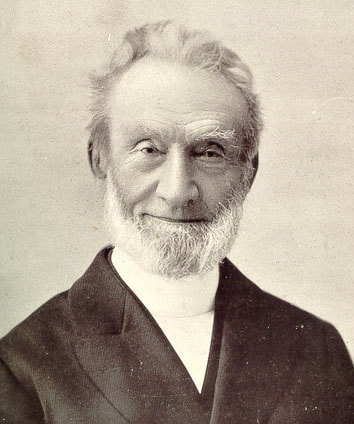
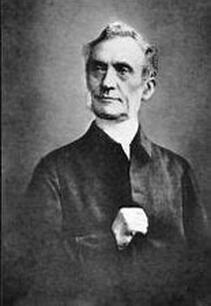
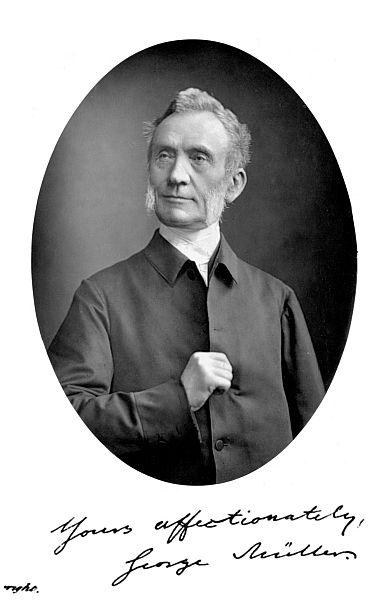



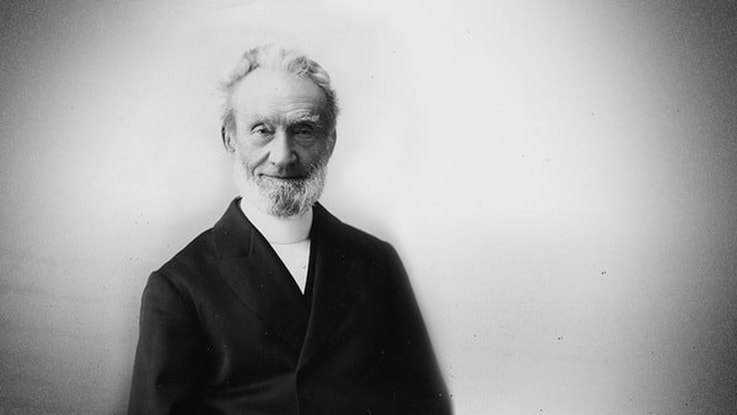
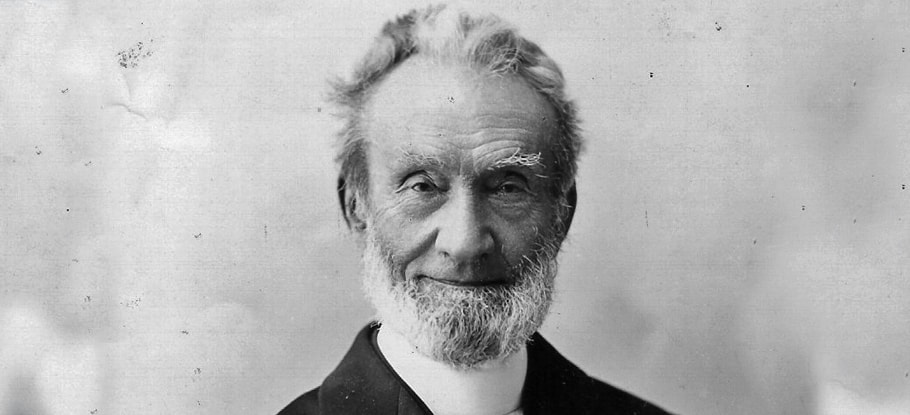
 RSS Feed
RSS Feed